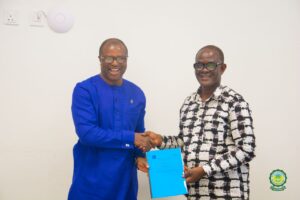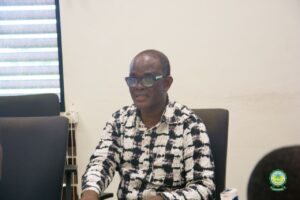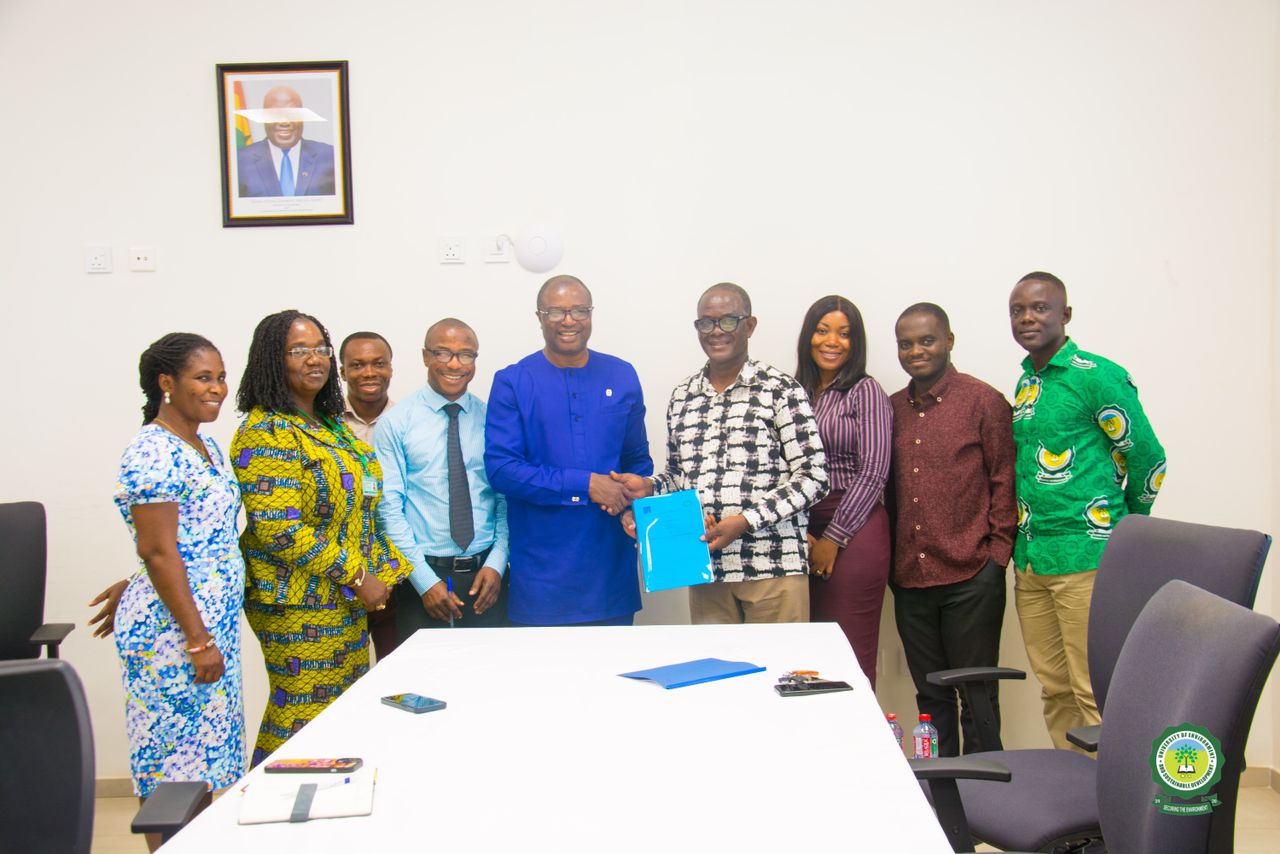The University of Environment and Sustainable Development (UESD) has entered into a Memorandum of Understanding (MoU) with the Hunger Project, Ghana, a subsidiary of the Hunger Project, a worldwide charitable organization, for collaborations in water and sanitation, biodiversity, and other related areas.
The agreement was signed in the Council Chamber of UESD by Prof. Eric Nyarko-Sampson, the Vice-Chancellor of the University, and the Country Director of the Hunger Project, Ghana Mr. Erasmus Samuel Afrane.The MoU has been described as one of the most strategic agreements the University has entered into. The Pro-Vice-Chancellor of UESD, Prof. Edward Wiafe Debrah, and Mrs. Afia Serwaa Pokuaa Darteh, communications officer, Africa Region of the Hunger Project signed as witnesses.

The Registrar of UESD, Mrs. Mary Abena Agyepong, who facilitated the session, expressed hope that the MoU will fortify the already established rapport between the two institutions. She promised her office’s unwavering administrative support for the agreement and all projects to be undertaken.
In his remarks, Mr. Afrane stated that the Hunger Project operates in more than twenty-two (22) countries across the globe, with about nine (9) of its projects in Ghana. Its primary focus is to provide basic infrastructure and amenities to deprived communities to make them self-reliant. The facilities the NGO provides to the communities include motorable roads, schools, farming tools, fertilizers, and health clinics, which are strategically located in communities with CHPS compounds. He said it is the NGO’s view that once the communities are provided with the raw materials and inputs for growth, such communities would be on their way to becoming self-reliant.

He was optimistic that the agreement between the Hunger Project and UESD would not only benefit the University but also the surrounding communities in terms of sustainability in agriculture, environment, and community development.
In response, the Vice-Chancellor, Prof. Nyarko Sampson expressed delight about the relationship that has been established between the two institutions. He explained that his happiness stems from the fact that all the projects and programmes the Hunger Project is engaged in fall within the scope of the University. For this reason, the two institutions can create mutually beneficial collaborative projects.
For instance, these projects will be of immense benefit to students participating in the University’s annual Community-Based Experiential Learning (CoBEL) programme. This programme is designed to give students entering Level 400 hands-on practical experience in their areas of study as they are posted into communities within Somanya and its environs.
Prof. Nyarko-Sampson mentioned that with this MoU, the two institutions can collaborate to increase their reach across Ghana and beyond. He added that it will enhance the University’s vision of impacting lives across the country and bringing education to everyone, particularly on issues of responsible and sustainable living. This is necessary for the maintenance of the environment for the benefit of current and future generations.
The agreement was signed in the presence of Dr. Richard Amfo-Otu, Dr. Felicia Annin, Dr. Christian Larbi Ayisi, faculty members of UESD, and Dr. Raphael Nsia Gyambibi of the Hunger Project, Ghana.

